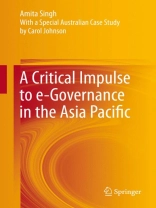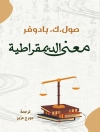This book presents a comparative study of the vision, ability and dynamism on the part of governments in selected Asian Pacific countries as they engage in the distribution of e-governance. Consequently, it creates a platform for mutual learning and offers a dispassionate evaluation of mega e-projects. It is an interdisciplinary study of information and communication technology within mainstream social science research and attempts to bridge the gap in empirical research between the nature of technology and the manner in which it is governed. The analysis shows that hegemonic and panoptic structures of surveillance and control may derail efforts to establish sustainable e-governance, while a liberal futuristic framework with open socio-technology networks on Big Data analytics, IPv6 and Cloud Computing may strengthen the trend towards democratizing institutions. Further, the book highlights the extraordinary energy being generated in the emerging new world through their use of the internet and suggests how governments could translate this into a new wealth of economic opportunities, social inclusion and equitable development, in addition to achieving the MDGs (Millenium Development Goals). Lastly, it emphasizes the importance of a visionary approach, which, wherever present, has been able to sustain e-governance by meaningfully linking the micro to the macro and heritage to the horizon.
Inhaltsverzeichnis
Chapter 1: From Governance to e-Governance.- Chapter 2: Epistemology and Theoretical Explorations of e-Governance.- Chapter 3: Developmental Aspirations and Networked Readiness.- Chapter 4: Towards sustainability of e-governance.- Chapter 5: Information Technology and the Role of Government in Australia: Political Ideology and Discourse in the ‘Asian Century’.- Chapter 6: Privacy, Control and the Law.
Über den Autor
Amita Singh is a Professor of Law and Governance at the Centre for the Study of Law and Governance at Jawaharlal Nehru University. She is also the Secretary General of NAPSIPAG (Network of Asia Pacific Schools and Institutes of Public Administration and Governance), a governance research network for the Asia Pacific region. She has written extensively on administrative reforms and the conservation of ecology and ecosystems. Her Australia India Council Fellowship in 2006 and subsequent association with the Government Innovators Network at the Ash Institute of Democratic Governance (Harvard University) have brought her close to technology issues in government reforms. Currently she is involved in studying the nature of partnerships which govern Information and Communication Technology in Asia Pacific countries.












